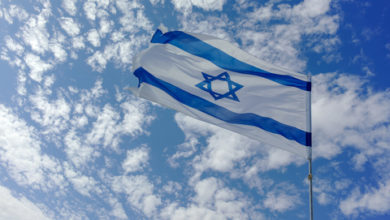The Bill of Sale
Before Jerusalem was conquered by the Chaldeans, G-d commanded Jeremiah to buy the field belonging to his cousin Hanamel, as we read in the Haftarah for this week. This symbolic act, which took place in the last moments before the city fell, is a sign to those about to leave in exile that they will return to Zion: “This is what the G-d of Hosts, the G-d of Yisrael says: Houses and fields and vineyards will be bought in this land” [Jeremiah 32:15].
The verses which describe in great detail how the bill of sale was written and then stored in an earthenware vessel, the testimony given before the witnesses, and the transfer of the money, serve as sources for many laws of purchase, including the law that a marriage is performed by the groom giving the bride money or a valuable object (Kidushin 2b). The connection between establishing a private home – marriage – and an act that is relevant for the nation as a whole – return from exile – is not coincidental. An individual achieves perfection if the specific goal of his actions is to benefit the community as a whole. And this is the meaning of the statement that whoever makes a bride and groom happy is considered as having rebuilt some of the ruins of Jerusalem.
Jeremiah also emphasizes the context within which the general situation will improve, and this too is an important detail along the path to mending reality as a whole: “Behold, G-d, You created the heavens and the earth with Your great might and with Your outstretched hand, nothing can be hidden from You” [32:17]. The destruction of the Temple is not just a tragedy for the nation, it is also a desecration of G-d’s name. While Moses called G-d by the names, “great, mighty, and awesome” [Deuteronomy 10:17], Jeremiah shortens this to “great and mighty” [Jeremiah 32:18] in this week’s Haftarah. He leaves out the title “awesome,” because he says to himself, “Gentiles are strutting around in His Temple, where is His awe?” [Yoma 69b]. The prophet’s prayer takes into account the fact that the destruction of the Temple causes harm to the understanding of G-d in the world in general. However, when Jeremiah mentions the Exodus from Egypt, he emphasizes its universal significance: “You who performed signs and miracles in the Land of Egypt to this very day, and in Israel and in mankind” [32:20].
G-d’s response to the call of the prophet also includes a reference to the universal aspect of Divine guidance: “I am Hashem, the G-d of all flesh” [32:27]. And He too adds, “Can anything be hidden from me?” [ibid]. From this we can see that the processes of history include reversals of political situations and of the repentance of Israel whose detailed workings are hidden from the eyes of man.
This is the essence of the Torah – to teach us that the actions of an individual must be incorporated within the general framework of improving the nation as a whole, which in turn is incorporated within the mending of humanity and the process of mending the entire universe. In the literature of mysticism these are called the simple song, the double song, the triple song, and the quadruple song – leading up to a song that includes all the others (see Rav Kook, Orot Hakodesh, volume 2, pages 444-445). Therefore, we must never disparage the influence a single person can have on very general processes, and we must never forget our obligation to mend everything that surrounds us, in the literal sense of the word.
Source: “AS SHABBAT APPROACHES” – a biweekly column in Shabbat B’Shabbato (Zomet Institute) See: http://www.zomet.org.il/eng – Behar 5775, issue 1573.



